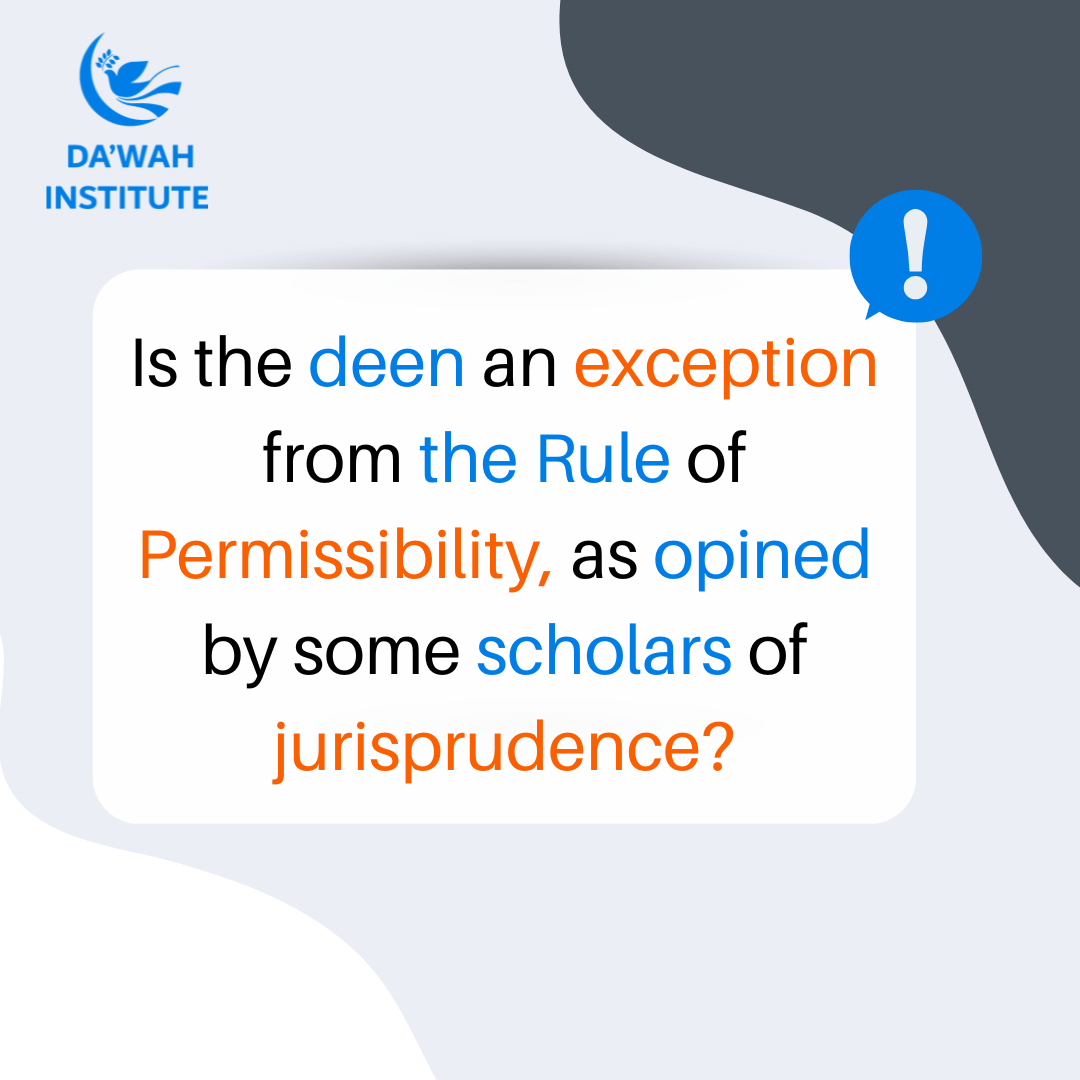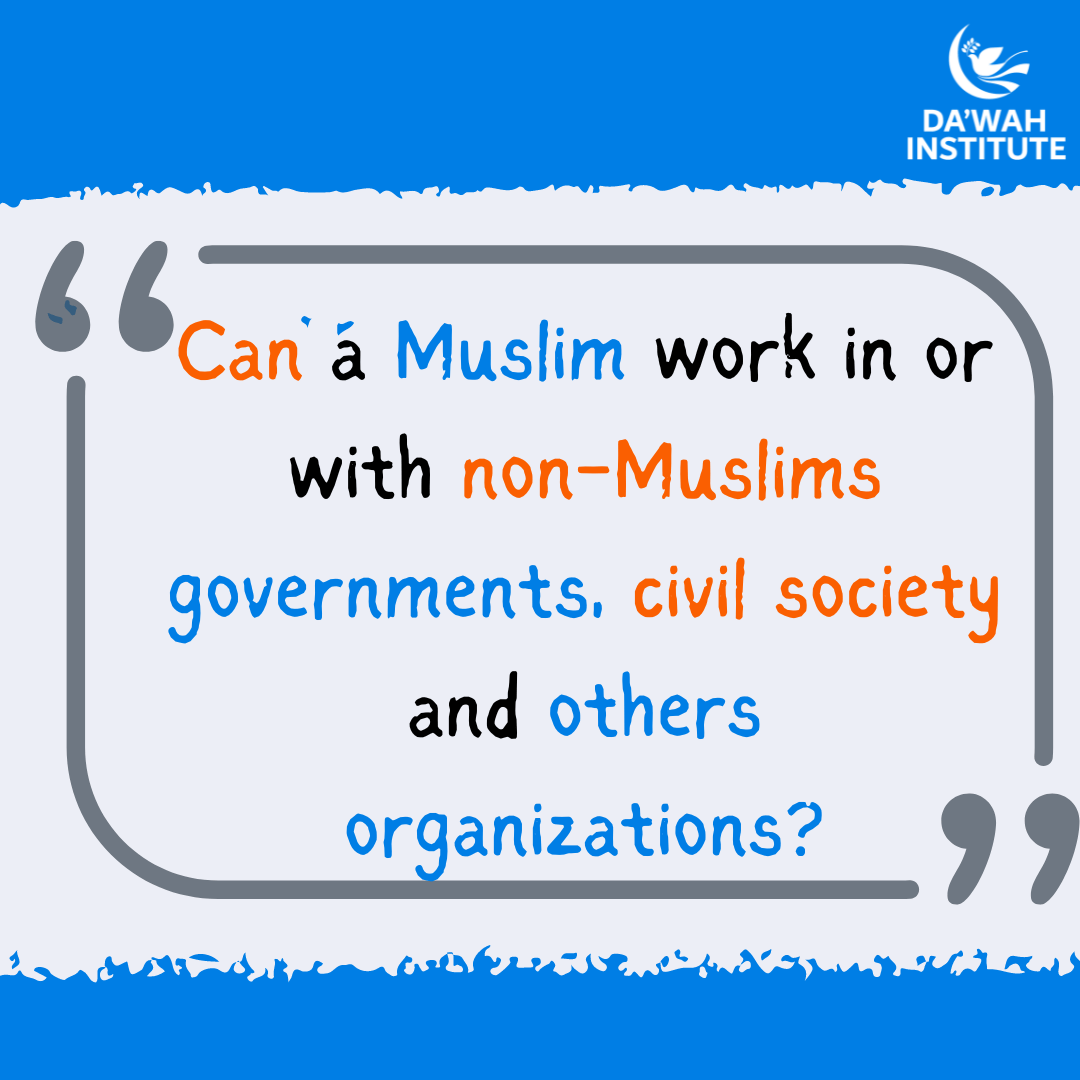
Many scholars from the various schools of juristic thought apply the principle of general permissibility to only mu’amalat and adat, and not to “religion” (deen) – ritual acts or devotional worship (ibadat) and creed (aqidah). This opinion holds that in issues of deen or ibadah the exact opposite of the maxim or principle of permissibility applies: “Everything is haram except what is halal (from the clear explicit text of the Qur’an or authentic Sunnah). Yusuf al-Qaradawi, The Lawful and the Prohibited in Islam, IIFSO, Salimiah, 1992, p.16-17.
According to Ibn Taimiyyah: “People’s sayings and actions are of two kinds: acts of worship (ibadat) by which their religion is established, and customary practices (adat) which are required for day-to day living. From the Principles of the Shari’ah, we know that acts of worship (ibadat) are those acts which have been prescribed by Allah or approved by Him; nothing is to be affirmed here except through the Shari’ah. However, as far as the worldly activities of people are concerned, they are necessary for everyday life. Here the principle is freedom of action; nothing may be restricted in this regard except what Allah has restricted…” Ibn Taymiyyah, Al-Qawa’id al-Nuraniyyah al-Fiqhiyyah, Maktabat al-Sunnah Al-Muhammadiyyah, Cairo, 1951, pp.112.
Elsewhere he says, “The principle regarding ibadat is that there is no legislating for it except that which God legislated, and the principle regarding adat is that there is no prohibiting it except that which God prohibited” Ibn Taimiyyah, Iqtida’ al-Sirat al-Mustaqim li mukhalafat as-hab al-Jahim, Vol.2, p.86. See also Abu ‘Umar ibn ‘Abd al-Barr, Al-Istidhkar, 5:153.
In the view of those who hold this opinion, the Principle of Permissibility and hence of beneficial innovations and creativity, applies only to worldly (dunya), mundane issues (mu’amalat) or customary practices (adat). It does not apply to “religion” or “devotional worship” (deen) – i.e., ibadat and/or aqidah.





